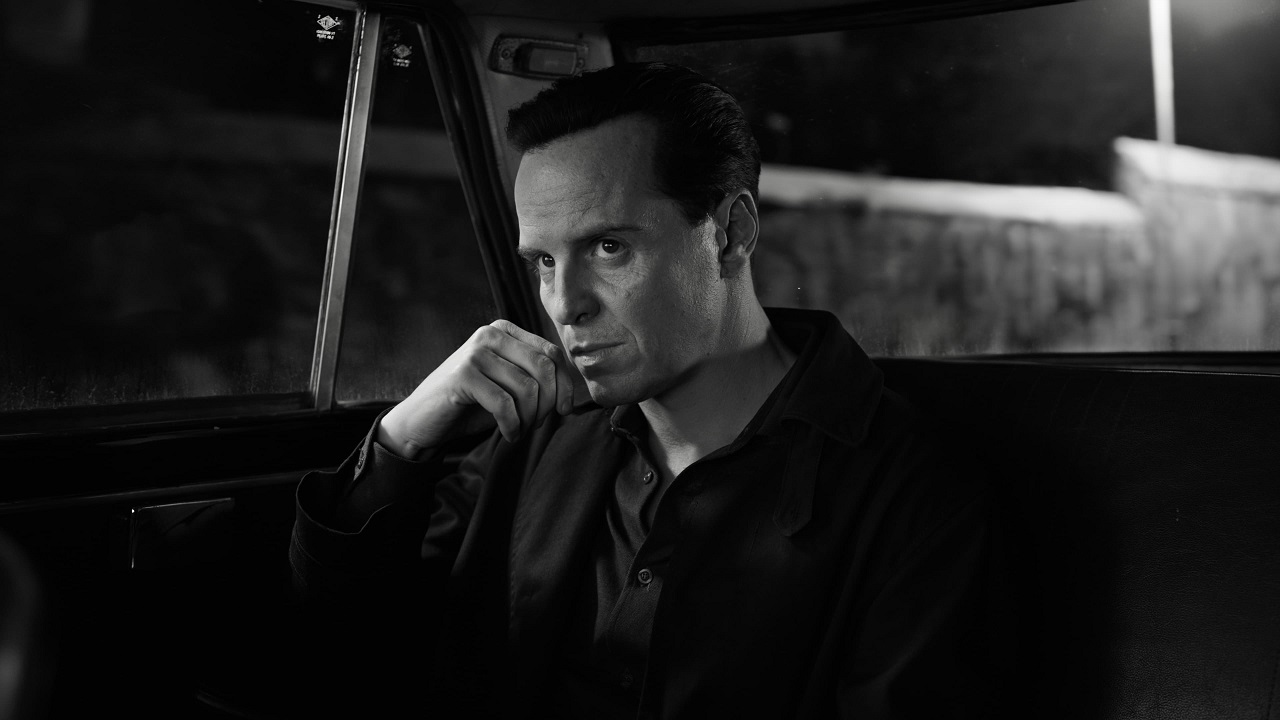Netflix’s super stylish Ripley series reinvents a classic sociopath
This series doesn’t feel like a throwback: it’s hermetically sealed in its own, manicured universe.

In a classy new limited series for Netflix, Andrew Scott steals our attention—and several identities—as literary conman Tom Ripley. Luke Buckmaster praises the show’s atmosphere, even considering Scott superior to Matt Damon’s version of the villain.
Netflix’s new adaptation of Patricia Highsmith’s classic page-turner The Talented Mr. Ripley is pretty freakin’ stylish: watching it feels like slipping into an Armani blazer, or some other clothing item you can’t afford. And that’s before the famously dapper and sociopathic protagonist, played with expertly ordinary creepiness by Andew Scott, arrives in a resort town near Naples, where its hard-edged buildings and mountainous backgrounds complement the show’s unsettling quietude and slow, steady suspense. Creator, writer and director Steven Zaillian summons paradoxical vibes, fashioning a kind of funereal holiday, luxuriant but dour. It’s a very well made and engrossing.
The first thing you notice is the show’s crisply beautiful black-and-white compositions, fastidiously crafted by cinematographer Robert Elswit, who won an Oscar for There Will Be Blood and infused Good Night, and Good Luck with smokier, tobacco-scented monochrome.
Ripley begins with the ticking of a clock, accompanied by close-ups of clocks, then a person for whom time has ran out: a corpse calmly dragged down the stairs by Tom Ripley, whose shadow is projected onto the wall behind him. There’s noir-ish vibes, those sharp surfaces accompanied by a bluesy and jazzy score filled with reverberating sounds. And the characters speak slowly and gruffly, weighed down by a colourless world.
But this series doesn’t feel like a throwback or homage: it’s hermetically sealed in its own universe, with a finely manicured atmosphere. Even the dream sequences (one for instance shows water rising up from the drain during a shower) are well behaved. The story flashes back six months to New York City, where old mate Ripley is committing small-time fraud, writing to people and asking them to pay fake overdue invoices—roughly the equivalent perhaps of today’s telemarketing and email scams. He’s approached by a shipping magnate and asked to travel to Italy to try to convince the magnate’s son, Johnny’s Flynn’s Dickie Greenleaf, to return home. Dickie is living off trust money “we stupidly put in place for him, and which we can’t legally cut off.”
We first meet Dickie while he’s lying on a beach with his romantic partner, Dakota Fanning’s Marge, but there’s no joy in this moment: their bask in the washed-out sun feels more like a period in limbo, a dramatic space waiting to be filled. Across the four episodes I’ve seen so far, the drama hums along to a cold, disarming beat, overlaid with drawn-out anticipation—a feeling things will change, and not for the better. There’s a chilly predeterminism in this world; a sense the characters’ fates are written in the stars. The first episode’s final scene (no spoilers) is more a final moment, one well-placed line of dialogue cleverly inferring the things to come, far more effective and certainly much more character-oriented than any “coming up next on…” teaser.

Scott plays Ripley in a very “normal” way, not as a repressed killer or a person hiding nasty streaks per se but a seemingly ordinary man who might flip at any moment. But he won’t go postal, he’s not impetuous like Meursault from The Outsider, who famously killed an Arab man on a beach when he was hot and bothered. Ripley is cold and calculating; he’s a thorough planner; he’s aware of consequences and implications and he’ll go ahead with his dirty deeds anyway, thankyouverymuch. Scott’s performance is top-notch and gets under your skin more than Matt Damon did in Anthony Minghella’s 1999 film adaptation.
The phrase “the banality of evil” became an intellectual cliche a long time ago, but it’s worth considering here, Zaillian bringing a new unsettlingness to Highsmith’s work, reinvigorating the question of whether particular psychological features lead to or define evil deeds while avoiding the problematic task of attempting to diagnose Ripley. The protagonist pursues a better life for himself, with no compunctions or reservations, though in the book he comes across far more paranoid and internally ravaged. Zaillian resists voice-over narration, making it harder to get inside his head, pushing Scott for subtle ways to draw his wickedness to the surface—a challenge very impressively achieved.























